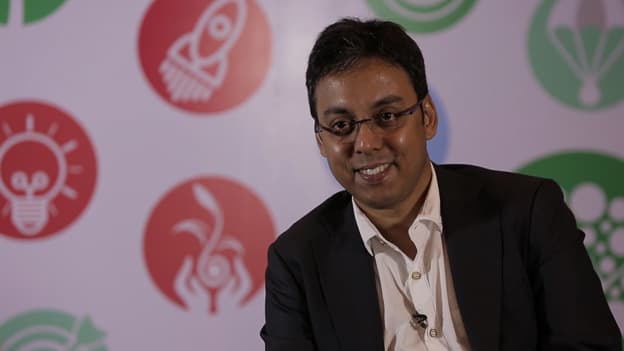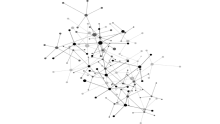Democratize the HiPo programs
HiPo Week Read similar articles

What role do HiPos play in the growth and success of a business?
It was beautifully summarized by Dave Packard of Hewlett Packard many years ago that “no company can consistently grow its revenues faster than its ability to grow talent”. As organizations focus on growth, one of the realities of these uncertain times is that we don’t fully know which area of business we can grow in. Our reliance on talent that can figure out the path, lead the business and get outcomes that we want is very high.
The second aspect is innovation. Today, the ability of organizations to conquer the marketplace is totally reliant on its ability to transform itself. That intelligence only comes through having smart people in the organization who have invested in themselves and are watching market trends, making judgements and that’s something one can’t train them to do.
The third aspect from Sapient’s standpoint is our purpose of being a great company and enabling human potential. So, enabling potential is a key part of why we exist and even from that perspective HiPos are really important to us.
What do you look for in a HiPo? How will you define one? What is unique about them?
First of all, they are strong performers in whatever they are currently doing but strong performance alone does not indicate high potential. So for us, high potential is the ability to be consistently at the forefront over the coming years as it’s a forward looking assessment and not just a current state assessment of your capability.
One of the things I personally look for is drive. Drive is something that cannot be taught or instilled; either you have drive or you do not. I look for people who have the willingness to lead and one who always figures out how to get things done.
The second ability is insight; the ability to look at a large set of data or observe a lot of things and then connect them and come up with something meaningful. Also, the ability to collaborate and influence makes one unique. Today, as businesses are increasingly becoming global, the ability to create outcomes only through people whom you directly control will limit the outcomes that you can deliver for the organization. So, the ability to influence people across cultures is really important.
We also have a set of leadership behaviour/competencies that we assess based on which we predict their long-term potential. There are four major categories of competencies.
1) Envisioning the future – the ability to take in information, project the future and be able to inspire people through the articulation of that future.
2) Driving outcomes – the ability to generate results, taking people with you.
3) Building organizations – developing people, inspiring them and thinking of the entire organization and not just your function alone.
4) Relationships – The kind of firm Sapient is, relationships are critical. It is a core value for us – as we work with distributed teams of clients and partners across multiple geographies, our ability to make deep, meaningful relationships with all of them really matter.
How do you intuitively identify people who have drive?
The things that characterize drive for me would be passion and energy – people who are restless and want to create something. People who are not afraid of voicing their views – they do not need you to tell them what to do but would have their own views on what should be done and how. Then, I also look for the ability to follow through on your commitment and passion with an element of persistence or tenacity.
How do you scale a program keeping in mind the competencies you are looking for or the ones the organization requires? How do you channelize all that to fit into a program that makes it consistent and not one on an ad-hoc basis?
It has to start with a commitment to the value of developing people because if you look at it as a business process, there are times you’re busy and you tend to devalue it. The more you value it intrinsically, the more energy you’ll be able to put into it. If I look at our history from our start-up days, even before we could begin assessing people, we were committed to developing people. We gradually picked up all the tools, the assessment methods, the ratings distribution, and all that, but that commitment towards developing people, investing in what they want, giving them real time feedback and coaching them was always in us.
The second thing that’s important to institutionalize a HiPo program is to democratize it. We cannot tell our people everything that they need to be doing, we can tell you what our needs are as an organization, but you need to make the choices based on what you’re passionate about. Sometimes that choice may lead you to look somewhere else and I need to respect that. But, once I am clear on the fact that it’s a democratic process with equal participation from the individual, that’s the beginning for enabling any potential.
In many organizations, it’s very prescriptive. There’s a robust process but not enough participation which I think takes a little away from the soul of such a program. Our approach also includes assessment tools that allow you to get a better understanding of your motivation and your core strengths and leadership is completely based on these two fundamentals. This kind of a program empowers the individual and allows them choice.
The basic principle that drives learning for HiPos for us is that most of the learning happens on the job. For instance, as one of the senior leaders takes a leave, he nominates another individual from the organization to take up his position for the time being. After coming back, both sit together to discuss and share feedback on the individual’s experience on the senior role.
We also take job rotation very seriously. To cite an example, a few years back I was asked to be the India hiring lead whereas I had no prior experience in recruiting. For six months, I ran hiring and that added a lot of exposure and expanded my perspective of the business. Similarly, we try and provide people varied exposure across functions and geographies.
I also feel that as businesses are rapidly changing, there’s a scope for exploration and we support experimentation. So if you’re really passionate about doing something and it generally fits in with what we do, we will probably support it even when we may not fully understand where it would go.
Another thing that we’re trying to do is take it across all our people. A few years back, the program was only limited to the senior leaders but now we’re trying to take it across all our people so tools for self-assessment are available and we let people choose which tools make the most sense given what they want to accomplish. In addition to this, we also consider their level of commitment as an important aspect.
How do you measure a HiPo program to know whether it is going the right way?
The biggest long-term measure of a high potential program is gauging the talent gap between the business and the state of talent we have. We also measure the succession plan, which is one of the major outcomes of a HiPo program. Succession plan is necessary but not sufficient as it allows you to cover your base knowing you are de-risking your existing business plan. Another way of looking at the success of a HiPo program is how happy, satisfied and engaged your high potential people are. We believe that if they are developing, they will want to stay and achieve great outcomes for you.
The reason why some HiPo programs fail is that they focus a lot on the tangible aspects of skill development while missing out on the emotional connect to the organization and its purpose or vision. You can measure the skills, but the only way to measure whether a person is truly your leader for the future depends on their connection to your purpose and values. This is very important for us – and we do this by communicating and reinforcing our purpose and values in our day to day behaviours, making the effort to connect every individual to the larger picture, and creating an environment where people feel heard.
What is your message to the HR community to help them get the high potential program right?
My experience is that many traditional HR methods are very prescriptive and the role of an individual in developing a HiPo program has not been sufficiently recognized. No individual joins an organization to be unsuccessful. Every individual has an innate desire to fulfil their potential and many of the traditional HR methods do not recognize it and don’t give it as much importance. What I look for in the programs is flexibility, respect for individual’s interest and the ability to support.
The second element is about bringing in diversity and that requires some more conscious effort. Diversity is not just about gender and race, but also in perspectives and experiences making sure that the set of leaders you are developing are not clones of one another. More than a process or a set mechanism, I rely on intent and articulating that intent focusing on people helping them do the right thing.





